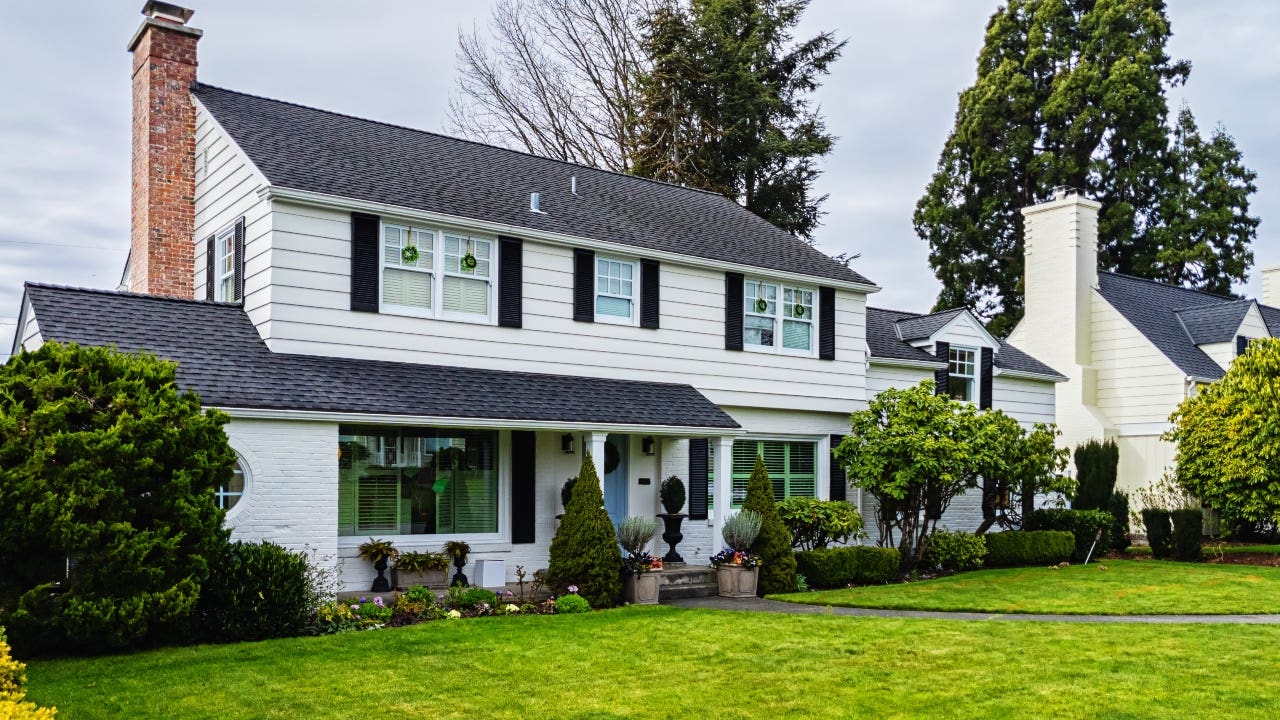Is doing a VA cash-out refinance a good idea? Here’s what to know

Key takeaways
- Make sure to tap into your home equity using a VA cash-out refinance for the right reasons, such as making home renovations and repairs or consolidating high-interest debt.
- Think twice before using a VA cash-out refinance to pay for everyday bills or big discretionary purchases like vacations, celebrations or home furnishings.
- While VA loans let you tap nearly all of your equity, be certain that’s the right move for you. If home prices fall, you might be underwater.
Florida retiree Leroy George was trying to tap his home equity: He had unpaid bills piling up and wanted to fatten his emergency savings account. But he could borrow just 80 percent of his home’s value via conventional routes, like a cash-out refinance or home equity loan. Thanks to his 17 years in the Navy, George was eligible for a cash-out refi through the Department of Veterans Affairs (VA). George ended up with a payout close to 92 percent of his home’s equity.
If you have served in the U.S. military, you may qualify for a VA loan. VA mortgages and refis offer generous benefits, including the ability to finance or tap 100 percent of a home’s value.
But does that mean a VA cash-out refinance is a good idea? Not always. You have to consider what you want the funds for, and weigh other concerns to decide if a VA cash-out refi is the best option.
A VA cash-out refinance is a type of mortgage guaranteed by the VA that essentially swaps your current mortgage with a new, larger loan that allows borrowers to take the extra amount out as ready cash. You must be eligible for a VA loan to do a VA cash-out refinance.
Times when you should get a VA cash-out refinance
Just because you can tap your home equity doesn’t mean you should.
Homeowners who have built up sizable equity in their properties and are confident in their ability to cover increased mortgage payments are good candidates for a VA cash-out refinance. However, the reason you need the money can be a factor too. Here’s a breakdown of good reasons for pulling cash out of your home.
Home improvements and repairs
“Many people run into home improvements that they cannot afford to pay cash for,” says Jason Bower, vice president of Lending for Epic Mortgage in Brookfield, Wisconsin. “A new roof, siding, windows and other remodels with a good return on investment can all be great reasons to utilize a cash-out VA refinance.”
Making major fixes, remodeling and upgrading with cash-out refi money can be a shrewd move: You’re using your home equity to improve your home’s value, which in turn boosts the worth of your homeownership stake. But the key is the enhance-value/return-on-investment part. Be cautious with non-essential additions like swimming pools or lavish fire pits that may not necessarily up your property’s worth in a significant way. Avoid going overboard with projects like kitchen and bathroom upgrades: The more you spend on them, the less likely they are to recoup their cost.
On the other hand, if you need essential upgrades like a new central air or an improved electrical system, doing a cash-out refi can be a cost-effective way to finance these projects. By using mortgage funds, you can take advantage of favorable interest rates and spread the cost over a longer period.
Consolidating debt
It may be beneficial to replace high-interest credit card debt with mortgage debt, which historically offers lower interest rates. However, there is an important condition to keep in mind: If you pay the bills with cash-out refi funds and then run up big credit card balances again, you may find yourself in a tighter financial situation with a diminished home equity cushion to soften the impact.
Only opt to withdraw funds from your home to pay off credit cards if the balances grew due to one-time expenditures, and if you are committed to avoiding accumulating more credit card debt in the future.
Investing
Taking on debt for investment purposes — borrowing money in the hopes of making money — can also be a good strategy, though it’s not without controversy.
Bower advises using the tapped equity to purchase an investment property, such as a duplex or small apartment building.
“Most VA loan borrowers do not know that they can actually utilize their VA loan benefit to purchase a two- to four-unit property,” he notes. Just be aware that you must live at that property (in at least one of the units) as your primary residence; if you do, you are allowed to rent out the other units.
Another good use: If you intend to apply the liquidated equity to bolster your retirement savings — investing in low-risk, low-cost ETFs or mutual funds — or diversify your portfolio.
However, if your goal is to start day-trading stocks or participating in the cryptocurrency craze — think twice. These moves carry significant risk, and while there is a possibility of significant gains, there is an equal chance of substantial losses.
Paying down student loans
This situation can be a bit tricky to navigate. If you have student loan debt from private lenders, it could be beneficial to use your home equity to pay it off. Private loans often come with higher interest rates and less flexible repayment options, so tackling them first makes sense.
However, if you have federal student loans, there’s no need to panic about paying them off quickly. These loans usually have reasonably low interest rates and offer income-based repayment plans. As a result, federal student loans may not burden you as much as other types of debt.
Times when you should not get a VA cash-out refinance
Not every scenario is worthy of pulling the trigger on a VA loan cash-out refi. Avoid the urge if any of the following situations apply.
Rising interest rate environments
Have a look at where prevailing interest rates are now, vis-à-vis when you got your first mortgage.
“It may not be a good idea to refinance using a cash-out VA loan if your new interest rate isn’t significantly lower than your current one, or if the closing costs and fees outweigh the benefits,” cautions Dennis Shirshikov, a professor of economics at City University of New York. “Moreover, if you don’t plan to stay in your home long enough to recoup these costs, or if you have insufficient equity, it is generally not advisable. And pulling too much equity out of your home can also be risky if the housing market drops.”
Going on holiday
Consider this perspective: Your home loan is structured to span 15 or 30 years because real estate is a durable asset that provides long-term benefits and is likely to appreciate in value. On the other hand, indulging in a Caribbean cruise or two-week sojourn in the South of France may seem enticing, but the enjoyment quickly fades away while you’re left with years of repayment. If resorting to cash-out refinancing is your only means of funding a getaway, it’s wiser to postpone the trip.
Funding high-priced purchases
Resist the temptation to liquidate your precious equity just to keep up with the Joneses. In other words, don’t pull cash out of your home just to cover the cost of pricey things like new furniture or lavish landscaping that won’t substantially improve your home’s value. Similarly, it’s a good idea to avoid using home equity for big-ticket purchases like a car or boat. If you need funds for these types of expenses, there are likely better options than refinancing.
Keeping up with household bills
Financial experts caution homeowners against relying too heavily on home equity as a means of ongoing support. Taking on a 30-year loan to cover monthly costs like childcare, groceries, utilities and regular home maintenance is not a sustainable lifestyle. If you find yourself with cash-flow problems due to a sudden problem, like a job loss, you could consider it; but set yourself a tight budget and timeline to pay the loan back as soon as possible.
Alternatives to a VA cash-out refinance
Tapping into your home equity through a VA loan is not the only option. If you are in need of some cash, consider these alternatives:
- Standard cash-out refinance: You may be able to get a standard cash-out refinance loan. The terms probably won’t be as generous, but the process may be quicker.
- Home equity loan/line of credit: Home equity loans and HELOCs also provide ways to tap your ownership stake, usually up to 80 to 85 percent of your home’s worth. These don’t affect your original mortgage; they’re additional debt. Their interest rate will likely be higher than a refi’s, though.
- Shared equity agreement: In this agreement, you sell a percentage of your home’s equity to an investment company in exchange for a lump sum. Since the money is an investment, not a loan, you have no repayments to make. When you sell your home or the agreement’s multi-year term ends, the investor gets their money back, and often an additional amount, based on the current value of their ownership stake in your home.
- Personal loan: With this option, you don’t have to touch your home equity at all. You may be able to take out a personal loan at a competitive rate, if you’ve a strong credit score. However, you may not be able to borrow as much and the repayment term will be shorter.
Is a VA cash-out refinance a good idea?
The experts agree: Pursuing a VA loan home equity cash-out refi can be worth it if you meet the recommended criteria and your use for the cash is one that should ideally grow wealth over time and/or decrease your overall debt.
“I would recommend utilizing your VA cash-out refinance option if you have home improvements that you want to do, have excessive debt to pay off or are interested in purchasing investment properties,” says Bower.
Still, the right answer will depend on your situation. “If you have a substantial amount of high-interest debt, need significant cash for a valid reason and are likely to get a lower rate or better loan terms, it can be a good option,” says Shirshikov. “But always consider the costs, the new loan terms and your long-term financial plans.”
Additionally, consult closely with an experienced mortgage expert who can examine your financial objectives, help you weigh the costs and benefits and offer tailored guidance depending on your specific circumstances.
Learn more: Compare current VA refinance rates
Frequently asked questions on VA cash-out refinances
Why we ask for feedback Your feedback helps us improve our content and services. It takes less than a minute to complete.
Your responses are anonymous and will only be used for improving our website.







